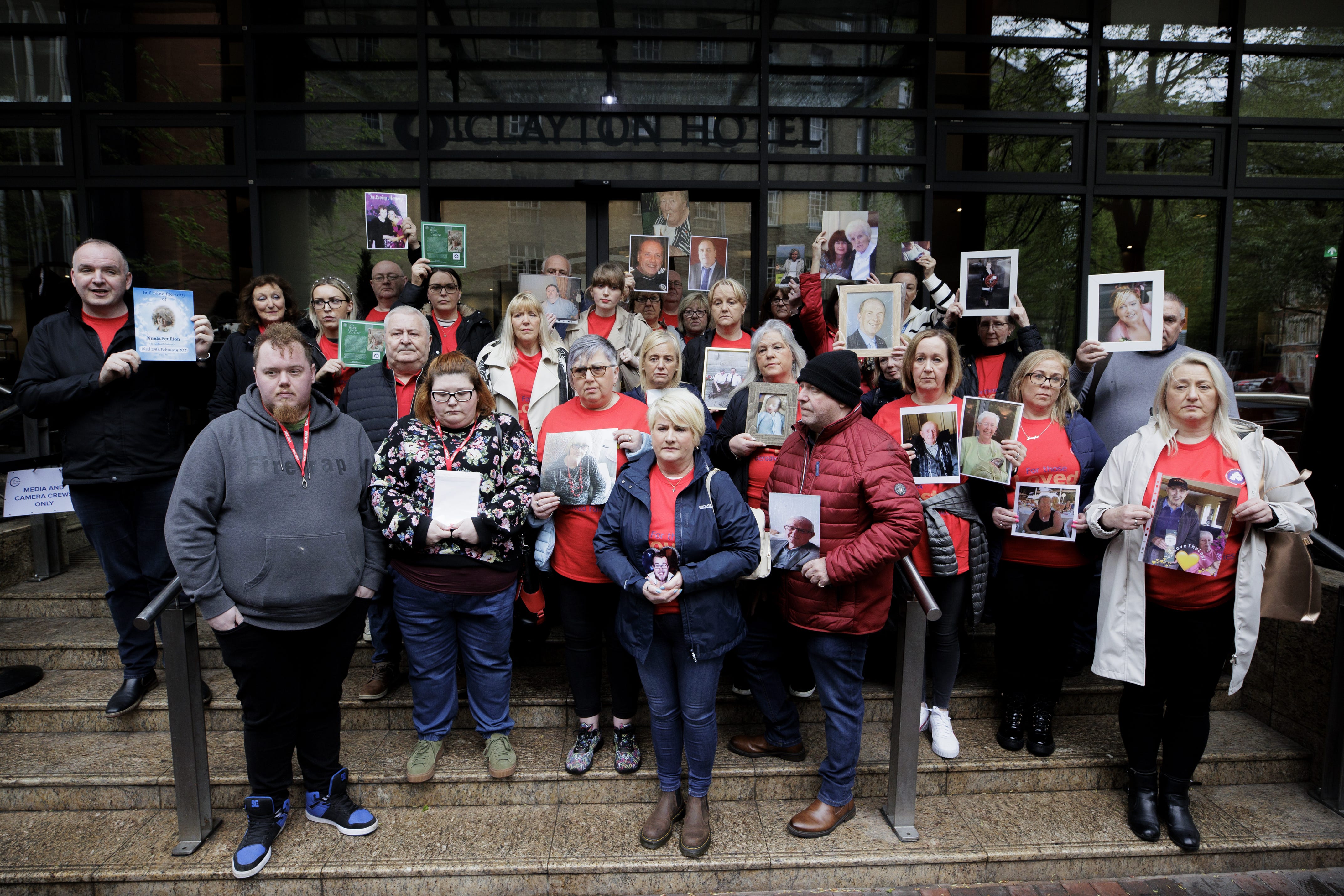Covid-19 inquiry can honour our loved ones’ memories, says bereaved daughter
The UK Covid-19 Inquiry opened in Belfast on Tuesday for three weeks’ of hearings.

The coming of the UK Covid-19 Inquiry to Northern Ireland “can honour our loved ones’ memories”, a bereaved daughter has said.
The inquiry started three weeks’ of hearings in Belfast on Tuesday, examining the political governance and core decision making in the region during the coronavirus pandemic.
A host of bereaved families attended the hearing at the Clayton Hotel led by the Northern Ireland Covid-19 Bereaved Families for Justice group.
Group spokesperson Martina Ferguson, who lost her mother Ursula Derry after she contracted the virus, said the families attended in memory of their loved ones, and to give them a voice.
The inquiry is to hear from those who led Northern Ireland during the pandemic, including former first minister Baroness Arlene Foster, then-deputy first minister, and now First Minister, Michelle O’Neill and Health Minister Robin Swann.
Their legacy will live on in those lives that will be saved when the next pandemic hits
Ms Ferguson urged all those giving evidence to be proactive.
“We need all politicians to hear this message loud and clear: the value of this inquiry depends on you,” she said.
“If we are to learn lessons from how our loved ones were let down, and save lives in future pandemics, you must hand over evidence proactively and respond to our questions truthfully.
“And you must act on the inquiry’s recommendations quickly and without qualification.”
Martina said the coming weeks will be difficult for bereaved families, and for the people of Northern Ireland, as everyone comes to terms with the political and structural failures that shaped the pandemic experience.
“No-one can bring back our loved ones but we have an opportunity now, through the inquiry, to honour their memories,” she said.
“Their legacy will live on in those lives that will be saved when the next pandemic hits.”
Another member of the group, Marion Reynolds, gave evidence to the inquiry on Tuesday.
She spoke of her experience with her elderly aunt Marie who died after contracting Covid-19 in hospital.
While her aunt was profoundly deaf, she could lip read and had been living independently with family members calling over regularly to check on her and make sure she was eating properly.
However following the introduction of Covid-19 restrictions in 2020, the family was unable to call in person. Ms Reynolds said her aunt was admitted to hospital with pneumonia in September 2020 where she caught Covid-19.
She was transferred to another hospital and then to a care home which had a wing for Covid patients where she could not receive in person visits.
Ms Reynolds told the inquiry that they asked the care home to assist with her aunt’s care but were not allowed to.
She said she eventually got in to see her aunt, and said she was wearing ill fitting clothes which were not her own and was “very dehydrated”.
She said she told those at the home her aunt was “dying before her eyes”, but was disagreed with. Three days later her aunt died, she added.
Nuala Toman from Disability Action also gave evidence to the inquiry on Tuesday.
She said disabled people during the pandemic were isolated, and some went hungry due to the “collapse of social care”.
“Disabled people during the pandemic were isolated, lonely, social care had collapsed and disabled people faced challenges accessing food and medicine, with many disabled people going hungry,” she said.
“Added to that, we were largely invisible among public decision-making processes, and our voices went unheard.”